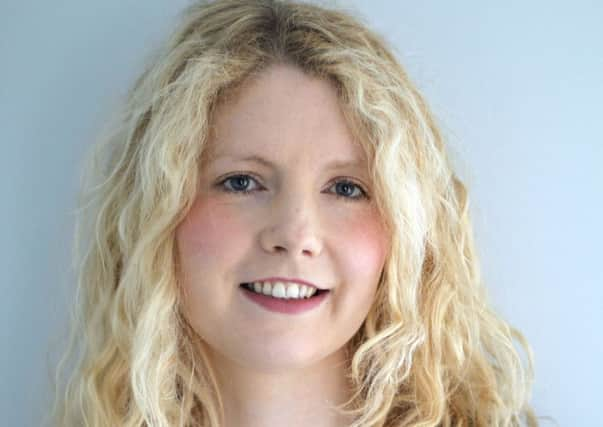'˜New mothers in NI need mental health support': Charity


NSPCC NI voiced concern after research indicated that an increased strain was being put on midwives and health visitors across the region.
The joint research conducted by NSPCC NI, the Royal College of Midwives (RCM) and the Community Practitioners and Health Visitors (CPHVA) involved a survey of 332 health visitors and midwives.
Advertisement
Hide AdAdvertisement
Hide AdThe organisations highlighted that mental health issues in the period before and after birth – perinatal – is a common problem, with around 10% of mothers impacted. This equates to around 2,400 in Northern Ireland every year.
Problems include depression, anxiety, post-traumatic distress disorder, obsessive compulsive disorder, eating disorders and postpartum psychosis.
The majority of the women affected are at the mild to moderate end of the spectrum, and will be managed in primary care settings, including GPs, health visitors and midwives.
However, the organisations behind the survey warned that, if untreated, perinatal mental illnesses could have a “devastating impact on women, babies and families”.
Advertisement
Hide AdAdvertisement
Hide AdThey claim the issue is currently receiving insufficient attention from health chiefs in Northern Ireland.
The new report, Time For Action, highlighted what it described as “gaps” both in the identification of illnesses and the response once diagnosed.
Midwives and health visitors who took part in the research stressed that continuity of care and face-to-face time with mothers and babies was crucial.
But they said this requirement was undermined by underfunding, overwork and growing levels and complexity of demand.
Advertisement
Hide AdAdvertisement
Hide AdThe study found that while health visitors and midwives in Northern Ireland experienced similar types of challenges in identifying and responding to perinatal mental illnesses as their counterparts in the rest of the UK, they did not enjoy the same levels of investment made in England, Scotland and Wales.
The NSPCC NI and its partners claimed Northern Ireland was the only part of the UK not to sufficiently fund perinatal mental health care, despite hundreds of millions of pounds of extra funding being diverted to the region under the Barnett formula.
Caroline Cunningham, senior policy researcher at NSPCC Northern Ireland and lead author of the report, said: “If left untreated, perinatal mental health conditions can have devastating consequences for women and their families and we know that many hundreds are affected by these problems every year in Northern Ireland.
“Despite this, Northern Ireland is the only part of the UK which has not committed to investment of funds on this issue, despite major funding on perinatal mental health having been pledged via the Barnett formula.
Advertisement
Hide AdAdvertisement
Hide Ad“Our research has identified important issues to be addressed around training, continuity of care, the lack of time that professionals have available to spend with women and families, and identification of perinatal health issues.
“We want new mums, their families and their babies to have the best possible start to parenthood and believe this report identifies important opportunities for ensuring that every contact counts between families and their midwife or health visitor.”
A Co Londonderry mother said more needed to be done help mothers suffering from post-natal depression.
Sarah Jane Knox, 40, from Magherafelt, said the stigma attached to the condition needed to be “broken down” so more women come forward and ask for support.
Advertisement
Hide AdAdvertisement
Hide Ad“On the outside I had it all - a new baby, a lovely home, grandparents and I am married to a GP, but post-natal depression is no respecter,” she said.
“It happened to me twice. I was a mess. The smallest task overwhelmed me and I felt like I was suffocating.
“The most important thing to do is talk to someone and it is vitally important that women get the right help and support. This was the only way I found myself back from the brink and the bleakness.
“I talked to my health visitor, my GP and my husband. They were fundamental to my diagnosis and recovery.”
Advertisement
Hide AdAdvertisement
Hide AdKaren Murray, Northern Ireland director at the Royal College of Midwives, said: “This report adds to the available evidence that there are significant gaps in the provision of specialist perinatal mental health services in Northern Ireland.
“The Royal College of Midwives recognises that perinatal mental illness has a significant impact on women and their families, and will continue to demand that women have access to a range of services which will ensure they receive the support and treatment they need from an appropriate professional at the earliest opportunity.”
Responding to the research, a Department of Health spokeswoman said: “The Department welcomes this initiative by the relevant bodies and will give careful consideration to their proposals.
“’Health and Wellbeing 2026: Delivering Together’ sets out the Department’s 10-year vision for Health & Social Care.
Advertisement
Hide AdAdvertisement
Hide Ad“In terms of the vision for mental health services specifically, the focus is on achieving parity of esteem for mental health services through the provision of early intervention and support in primary care, the development of specialist mental health services including perinatal mental health services and trauma services, partnership-working and co-produced design and delivery of mental health services which fully involves people using these services, and support for carers.
“Funding has continued to increase year on year with spend on mental health services rising to over £267 million in 16/17.
“The Department has also recently commenced work on a new 5 year plan with the aim of improving Mental Health services here.”